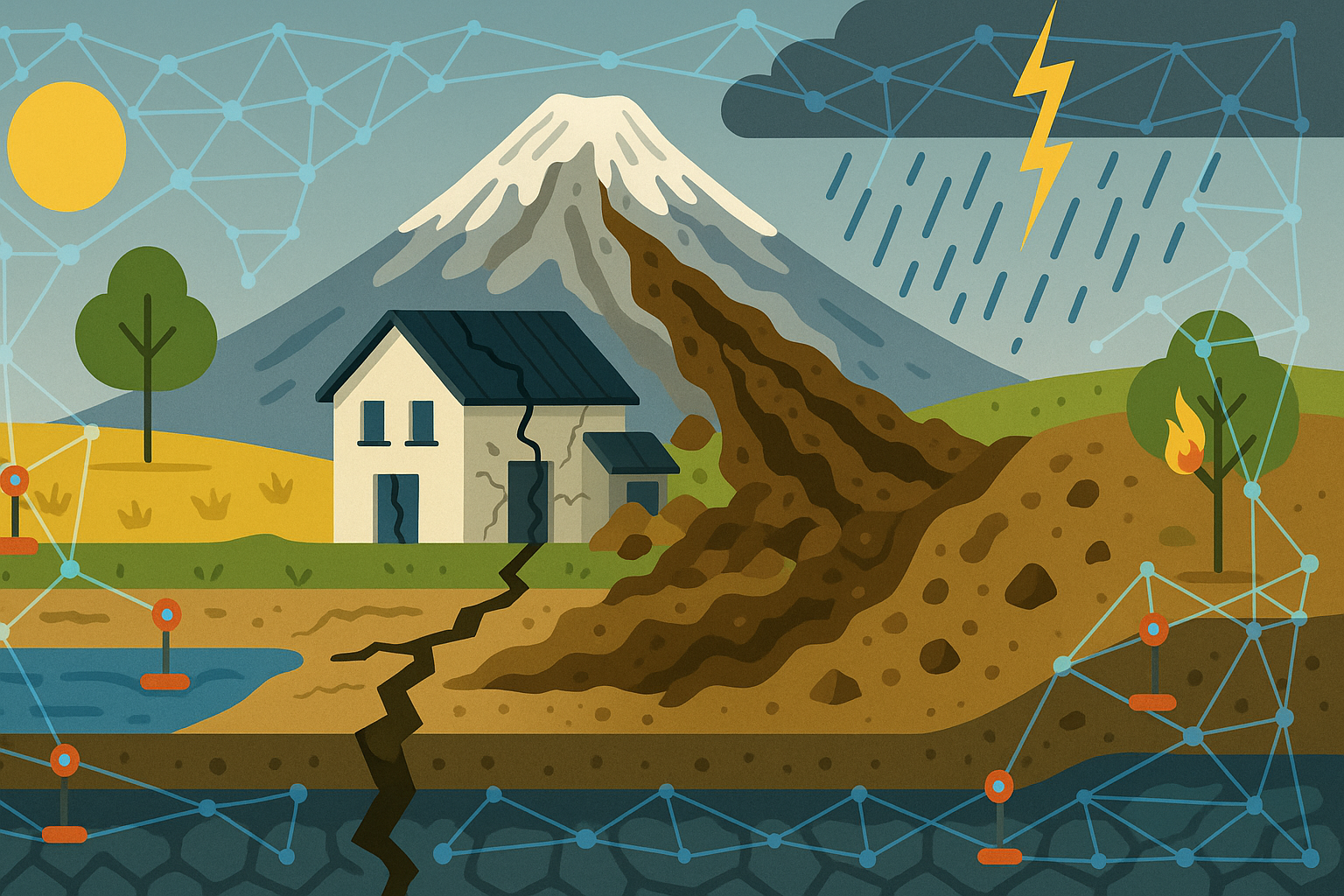
Environment
Ambient seismic noise reveals soil hydromechanics for water management and geohazard mitigation.
We aim to transform our understanding of geohazards by combining big data, advanced seismological tools, and insights from climate and hydrological sciences. Our research not only uncovers the processes that drive earthquakes, landslides, and other hazards, but also reveals how a changing climate reshapes Earth’s subsurface and impacts society and the environment.
Central to our mission is the development of low-compute, massive scalability, fully reproducible research workflows that facilitate seamless collaboration and reproducibility across scientific domains (see our Github). We are committed to fostering a culture of continuous learning and innovation, empowering our members to embrace modern technologies and AI-aided software practices.
Our mantra encapsulates our commitment to:

Ambient seismic noise reveals soil hydromechanics for water management and geohazard mitigation.

We detect and characterize earthquakes using novel observations, large-scale data, and physics-based models.

Physics-guided AI fuses simulations and sensing to forecast climate and compounding hazard impacts.
We are located in Seattle, WA, at the University of Washington, in the heart of the Pacific Northwest (PNW). The PNW is a wonderful natural laboratory to monitor earthquakes, landslides, volcanoes, glaciers, and more broadly speaking the subduction-zone environment.
We are looking for new graduate students, postdocs, and undergraduate researcher (more info) !